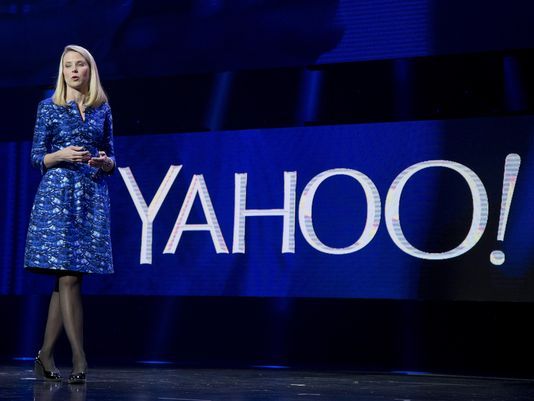
Once part of the elite of the Internet world, Yahoo is on the path to become an entry in the history books. After announcing, at the beginning of the year, that they are preparing to spin off their big stake in Alibaba in a separate company, Yahoo has now changed course and they plan instead, to spin off their core business. What has happened with Yahoo and why does everything seem to go wrong with this company? Let's explore this together, in this news article:
The guide to the World Wide Web
Yahoo started in 1994 as a project by Jerry Young and David Filo, two Stanford University graduate students who built a directory of the websites on the Internet. This may seem crazy right now, but at a time when search engines did not exist, this was a successful endeavour. The project became a business that established its Yahoo name, raised its first capital and got to its highest valuation in 2000 at more than $100 billion, as part of the dot-com bubble. The aftershocks of the bubble burst knocked Yahoo's stock price from US$118.75 in 2000 to an all-time low of US$8.11 in 2001.
As trivia, by the time Young and Filo got to register Yahoo, the simple Yahoo name was already taken for several other lines of business. To work around that an exclamation mark was added at the end. Yahoo! allowed Young and Filo to control the trademark.
The core business of a global portal to the Internet has been complemented with aggressive acquisitions that were rebranded under Yahoo name. This is how we got Yahoo! Mail, Yahoo! Groups, Yahoo! Messenger and others. While some of these additions managed to be successful, Yahoo lost its biggest battle: the battle for the number one search engine. After competing with Google, then using its search engine services for a few years and then competing again, in the end the company that wanted to be the "home on the Internet" lost the race and entered in a series of layoffs and makeovers that never showed them the way out of trouble.
One episode worth mentioning is the attempt from Microsoft to take over Yahoo in 2008 which Yahoo rejected and managed to thwart. One year later, Yahoo signed a deal with Microsoft to use Bing, its search engine. At that time, Yahoo's stock price was 60% lower than Microsoft's offer.
Marissa Mayer and the "mobile first" company
Yahoo's saga continued with a series with CEO's who sometimes lasted less than a year in the job. The current CEO, Marissa Mayer, got the job in July 2012 and came with the reputation of being a top executive with Google, Yahoo's nemesis. Mayer started from the position of being Google's employee number 20 and its first female engineer and got up to the vice president of Google Product Search.
Mayer went ahead with a series of radical changes in employee relations that included the elimination of remote work and forcing all employees back in the office. Her strategy for Yahoo was to create a mobile first company and a media content creator. The first year brought an increase in Yahoo's stock price and Mayer's leadership seemed to produce results.
By 2014, there was an increase of criticism of her decisions. In 2015, Yahoo's recovery went in reverse. This year has been dominated by the discussion of what to do with Yahoo's investment in Alibaba. Surprisingly, the success of the new kid on the Internet block, put Yahoo in a difficult position. Mayer announced at the beginning of the year the spin off of the investment in Alibaba. The problem for Yahoo has been that the value of Yahoo minus this very successful investment was very little. Yahoo board's decision to retain the stake in Alibaba and spin off Yahoo's core business, sends a clear message about its priorities.
Keep Alibaba and sell everything else
To be fair, Yahoo's one billion users and $5 billion revenue are far from negligible. It just seems that the investors have little trust in Yahoo and what they will do in the long run. Verizon's CFO, Fran Shammo, mentioned in an interview this week that the wireless carrier would consider buying Yahoo's Internet business if it "makes sense". Verizon has already gobbled up AOL earlier this year, another former giant of the dot-com bubble.
What does this mean for you as a user of Yahoo's services? In the short term, there is no expectation of changes. Yahoo's chairman of the board, Maynard Webb, sent on Wednesday a message of support for Mayer in which "the board has complete confidence". She has another year in which to increase Yahoo's value for a prospective buyer. This means that we have at least a year of continued services from Yahoo.
Are you using Yahoo? What do you appreciate more at Yahoo nowadays: its content business like Yahoo! Finance, Yahoo! Sports, Yahoo! News or its services like Yahoo! Mail and Yahoo! Messenger? Let me know in comments below.


 14.12.2015
14.12.2015 



